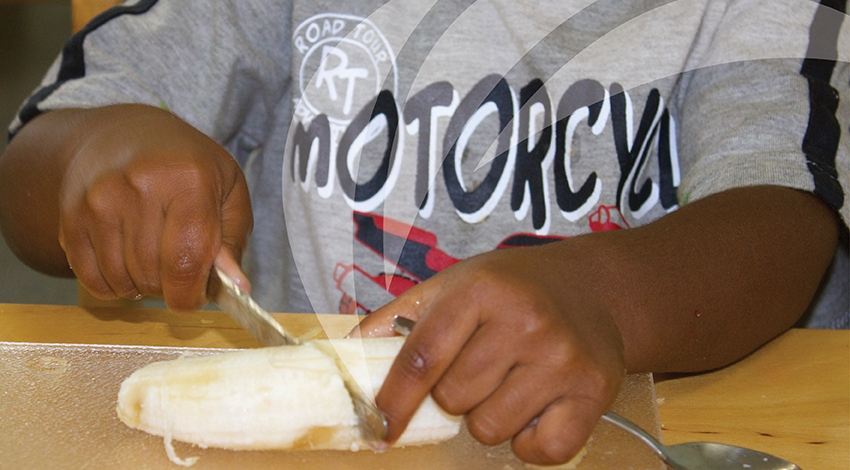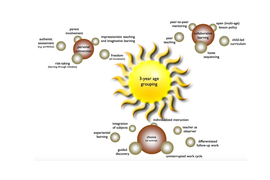
6 April 2017 - 9:11pm
Parenting is one of the most rewarding and challenging roles we play as adults. Our society has high expectations of parents and yet we are not always able to access the resources we need to become the parent we want to be. Montessori can offer you a parenting framework from birth to maturity. It is more than an educational method; it is an approach to supporting the full development of your child.
The following are some simple, yet effective ways in which adults can support the development of a young baby.
Independence is...
- being able to make decisions based on knowledge;
- having the ability to use and to trust your own judgment;
- something inside of the child pushing him every day to challenge himself;
- something to be developed over time, through opportunities to practice;
- an invitation to the child to be in charge of their actions, as opposed to being in charge of the household!
Independent Drinking
- Offer a small cup for your child to drink from once he can sit without help.
- By 12 months of age, most babies have the coordination and hand skills needed to hold a cup and drink from it.
- If you have breastfed your child, you may never need to introduce a bottle. Your child can transition straight from feeding to drinking from a small cup.
Independent Eating
- When we first introduce solid food we can give the child his own spoon as we use an identical spoon to feed him.
- If your child attempts to feed himself by grabbing for the spoon with food on, give it to him and fill the second spoon.
- As he progresses he will then want to fill the spoon himself.
- As time goes on we offer finger food that your child can feed himself.
- From the start we are aiming to give the child the impression that he can feed himself with us helping him.
Other ways to foster independence
- Take your child’s attempts to make decisions seriously. Give him time to think about the choices his is making.
- Be calm and consistent in communicating to your child which decisions he can and can’t make.
- Some decisions are yours to make as a parent e.g. your child’s bedtime or whether they brush their teeth. Some decisions require knowledge of consequence that your child does not yet have.
- When you offer your child a choice, ensure that it is genuine and that you would be happy with either option.
- The choices we offer need to be appropriate to the child’s stage of development. Limit the decisions that your child can make to his knowledge. When offering a young child a choice you could ask, “Do you want a banana or an apple?”. For an older child, you could ask a more open question, “Which piece of fruit would you like in your lunch box?”.
- From the start we can follow the child’s need for sleep rather than following a routine. When your baby is tired, put him on his bed and let him fall asleep without being rocked, held or fed to sleep. You can find information about tired signs at this link: http://pregnancyparenting.org.au/parenting/reading-your-babys-cues
- Avoiding the use of a dummy can assist with establishing breastfeeding and will also support language development, as they will be able to vocalize and respond to your communications.
- Using cloth nappies from the start will enable to your child to experience the sensation of being wet after urination. This natural feedback will be important when your child learns how to use the toilet.



